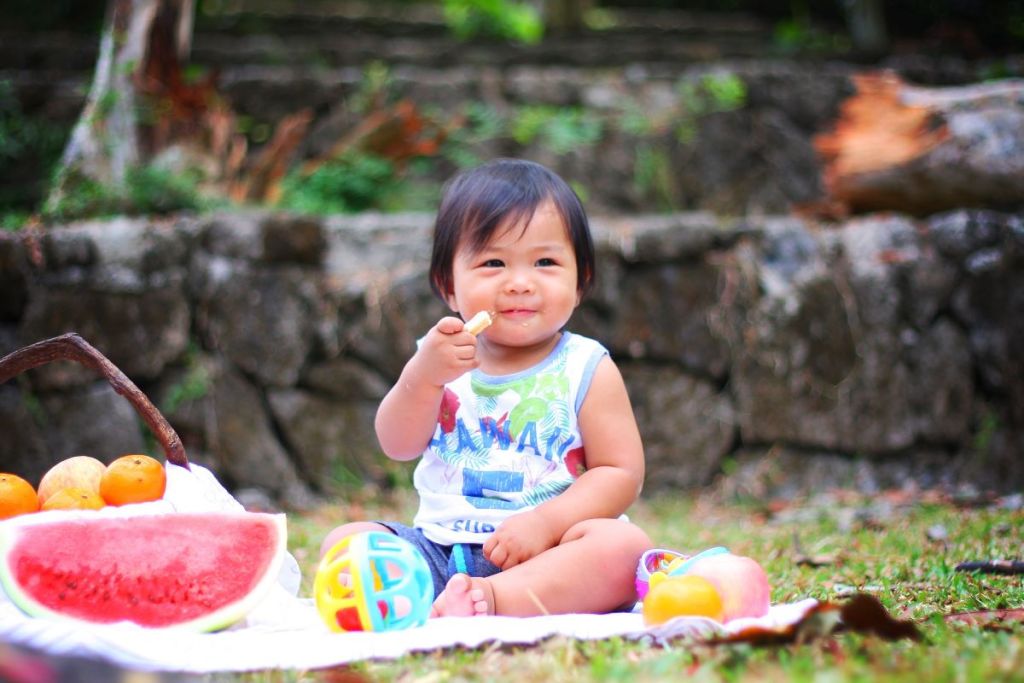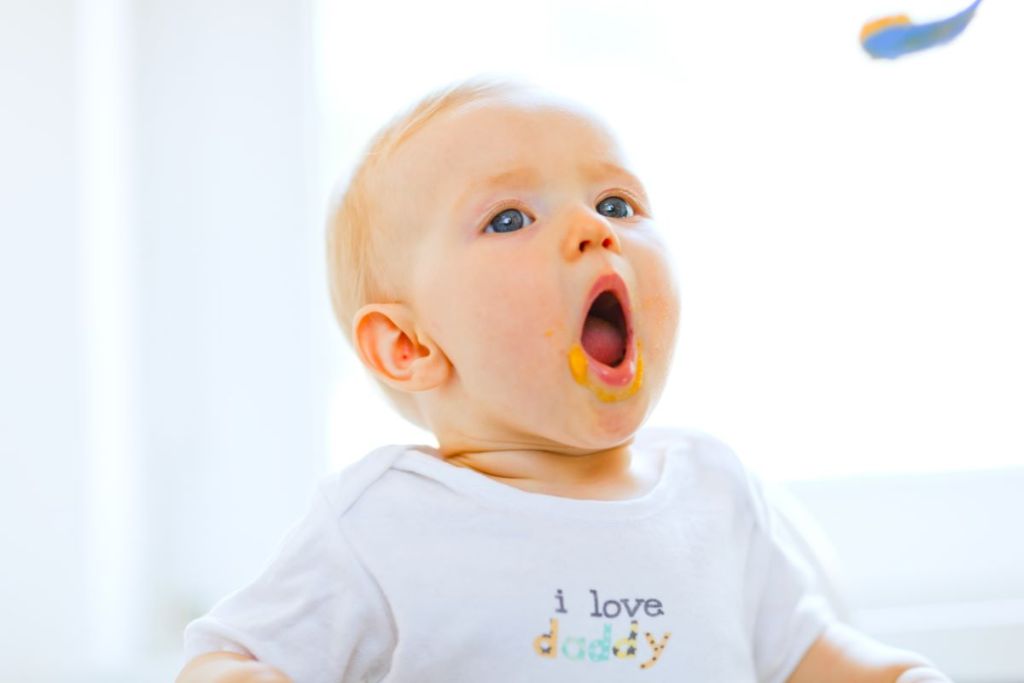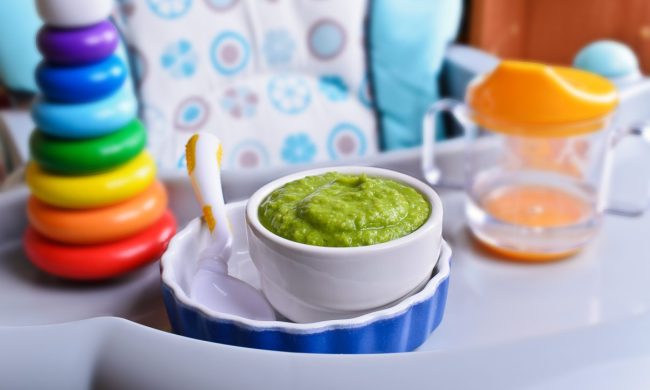It’s an exciting time when your baby reaches that in-between stage of feeding where formula or breast milk isn’t nearly as exciting as the food on the table. You may be eager to let your little one start eating solids, but at the same time, you’re concerned about choking hazards and deciding which are the best foods for your baby. It’s only natural to watch out for possible food allergies as well. Plus, there’s the factor of getting enough vitamins and minerals. Above all that, when can babies eat solid foods to begin with? There are many questions.
So, when can babies eat solids? And most importantly, what are the best solid foods for a baby to obtain the proper amount of nutrients? We’ve got the answers and some great ideas for starting you off with the most nutritious (and safest) solids, along with a few other feeding tips for this stage.
When can babies eat solids?

As outlined by the American Academy of Pediatrics and the Dietary Guidelines for Americans in an article published by the CDC, babies can start taking other foods, aside from breast milk or formula, at 6 months old. Anytime prior to that would be too soon. He or she might feel rather uncomfortable or even have some tummy trouble if introduced to solids too soon.
Thus, you can watch for some of these milestones that signal your child’s readiness to start eating solid food. These signs include:
- Grasping small objects
- Bringing these same objects toward the mouth
- Sitting up without help
- Maintaining control of the neck muscles and supporting the head
- Swallowing food completely instead of spitting it out
- Pushing food back from the front to the back of the tongue
Once your baby starts performing a few or some of these actions, then you know it’s time to bring out the solids.
How to introduce solids to baby

When introducing solid foods to your baby, you’ll start gradually. Although you’ve anticipated the excitement of watching your child try new things, ideally you should start with one single-ingredient food. Not only will you more accurately gauge your baby’s likes and dislikes, but you’ll also notice any allergic reactions or food intolerances.
Once you’ve introduced one specific food, you’ll wait 3 to 5 days before introducing another one. When starting with this slow process, your baby will most likely come to enjoy a variety of solids that will make up a balanced meal.
Another important tip to remember when introducing solids is to pay attention to quantity. Again, this helps your baby to avoid tummy issues such as gas or indigestion. This part of the process involves starting at 1 to 2 teaspoons of solids and slowly, over time, working up to 2 to 3 teaspoons, depending on your baby’s age. Naturally, you’ll include breastmilk or formula with the meal.
What are the best solid foods for baby?

For many parents, this part proves to be confusing. Which are the best solid foods for baby?
According to Dr. Tracy Agnese, a New York pediatrician and founder of Taking Care of Mom and Baby, starting with vegetables, like butternut squash, carrots, spinach, and sweet potatoes, presents a healthy, single-ingredient option along with fruits. At 6 months, you would start with the pureed form and then gradually work up to the steamed form of these foods as your baby reaches the 8-month mark.
As stated, staying with one single-ingredient food works best as you go through this process. Dr. Agnese also mentions that at this age, you’re focusing more on helping your child develop the skill of eating solids instead of the consumption of the food itself. For example, instead of opting for fancy packaging, you can give your child the banana so that he or she can practice holding it.
Additionally, you can peruse through this list of best solid foods for babies that are categorized by age, as noted by Esther Ellis, nurse and registered dietician.
- 6 months: infant cereal mixed with breast milk or formula; cooked and pureed vegetables; mashed avocado or banana
- 9 months: half-inch pieces of vegetables like green beans or squash; sliced or quartered pieces of fruit
- 12 months: small pieces of any cooked vegetable; small pieces of fruit; any mix of small portions of family’s meal
Also, keep in mind that all these age groups can have thoroughly cooked sources of protein such as meat, poultry, and beans. This starts with the pureed form at 6 months and up to the finely chopped or minced consistency at 8 months. At a year old, babies can have any shredded, soft meat and fish.
A few safety guidelines

In addition to what solid foods to start feeding your child, there are other factors you need to consider when your baby starts to eat solids. The first is to never leave your child unattended while they are eating. Choking is something that can happen at any time, even with food cut into tiny pieces, so it’s important to always supervise when they eat.
Adding solid foods like cereals to their bottle can also pose a choking hazard. Avoid feeding your baby directly from the jar of food to avoid introducing any bacteria into the jar. Instead, use a separate bowl or dish and throw out any leftover food. Introduce new foods slowly, as outlined above, so you can monitor for any potential food allergies.
When determining which of the best solid foods for a baby to start with, consider staying on the side of healthy choices. When you avoid items like popcorn, bite-size candy, and honey, you’re also evading the choking hazards. (Unfortunately, this also means staying away from grapes for a bit longer.) Finally, you don’t have to concern yourself with food allergies since you’re introducing one food at a time long enough to observe for a potential reaction. And of course, if you have any questions or concerns about allergens, digestive health, or nutrition, you should contact your pediatrician.




